Car brands are an integral part of the automobile industry, and they play a significant role in shaping consumer preferences and perceptions. A car brand is a name, symbol, or design that identifies a specific vehicle, and it represents the manufacturer’s reputation, quality, and innovation. The global car market is dominated by a few major players, and each brand has its unique identity, market share, and target audience.
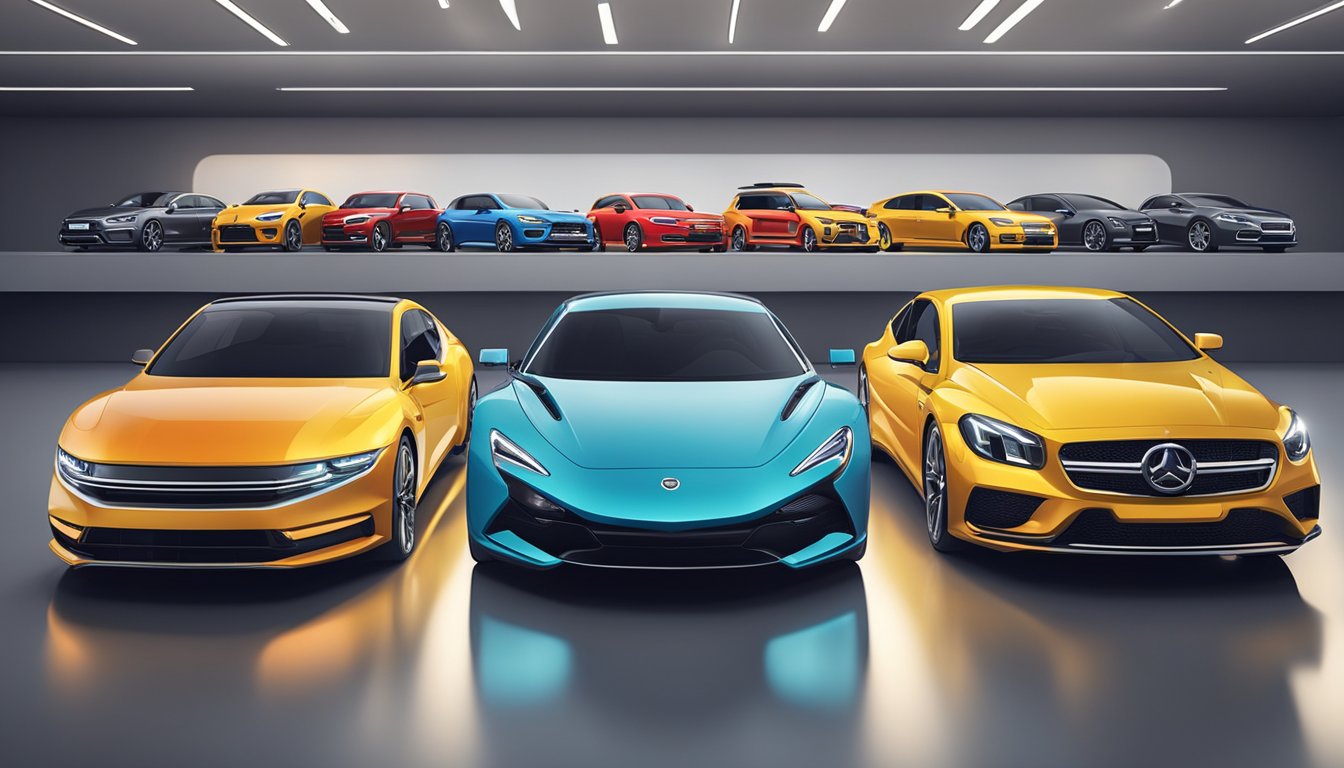
The history and evolution of car brands are a fascinating topic, and it reflects the changing trends, technologies, and consumer demands over time. From the early days of horse-drawn carriages to the modern electric and autonomous vehicles, car brands have come a long way, and they continue to evolve and adapt to the changing landscape. The competition among car brands is intense, and each manufacturer strives to create a distinctive brand image that resonates with its customers.
Key Takeaways
- Car brands are an essential aspect of the automobile industry, and they reflect the manufacturer’s reputation, quality, and innovation.
- The global car market is dominated by a few major players, and each brand has its unique identity, market share, and target audience.
- The history and evolution of car brands reflect the changing trends, technologies, and consumer demands over time.
History and Evolution of Car Brands
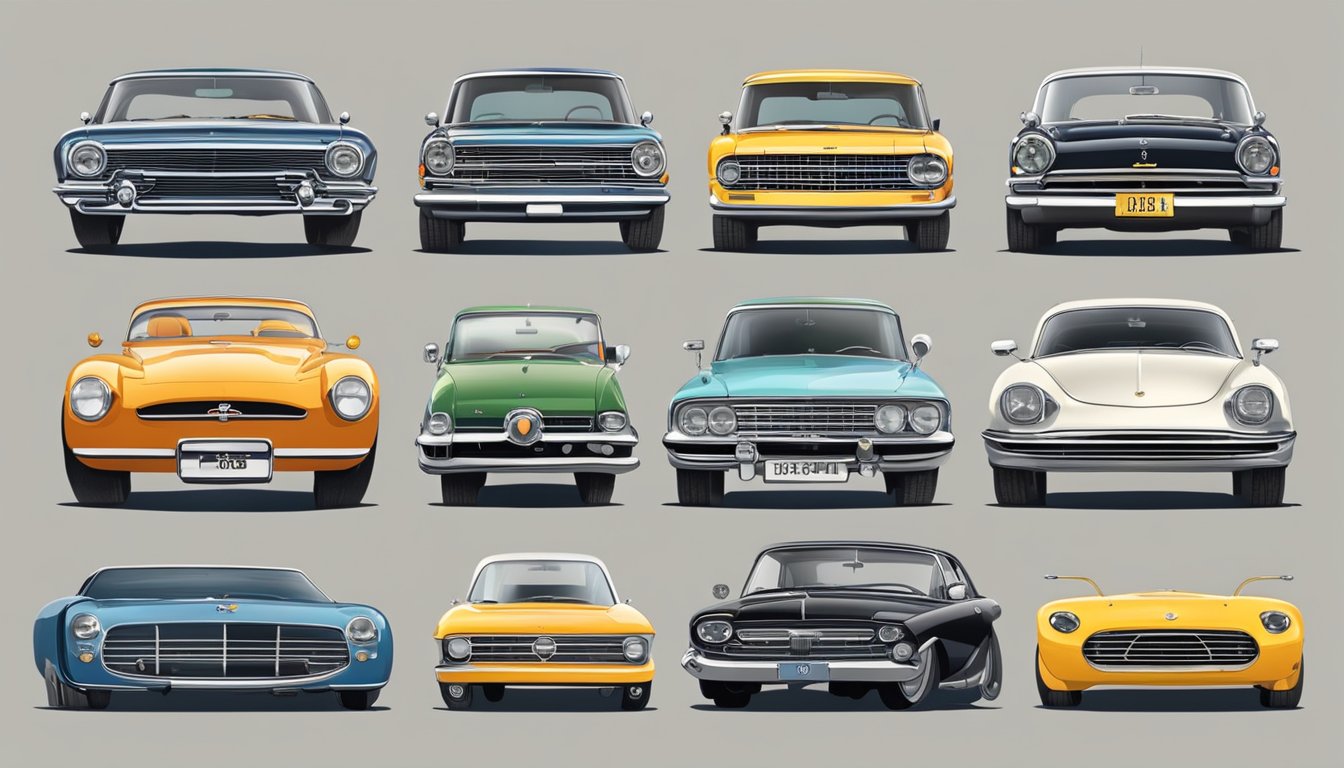
The automotive industry has come a long way since the first car was invented. Over the years, car brands have emerged and evolved, with some leaving a lasting legacy while others faded into obscurity. In this section, we will take a look at the history and evolution of car brands.
Pioneering Brands and Their Legacy
The early days of the automotive industry saw the emergence of pioneering car brands such as Ford and Mercedes-Benz. These brands not only revolutionized the way cars were made but also set the standard for the industry.
Ford, for instance, introduced the assembly line, which allowed for mass production of cars at a lower cost. This made cars more affordable for the average person and helped to put America on wheels. Mercedes-Benz, on the other hand, was known for its luxury cars and innovative engineering. The brand has continued to be a symbol of prestige and performance.
Rise of Electric Vehicles
In recent years, there has been a growing interest in electric vehicles (EVs) as people look for more eco-friendly and sustainable modes of transportation. Tesla, a relatively new car brand, has emerged as a leader in the EV market. The brand’s sleek designs, advanced technology, and impressive performance have made it a favourite among car enthusiasts.
The rise of EVs has also led to the evolution of traditional car brands. Many car manufacturers, such as Ford, have started to invest in EV technology and are now offering electric versions of their popular models.
In conclusion, the history and evolution of car brands is a fascinating topic that showcases the ingenuity and innovation of the automotive industry. From the pioneering brands of the early days to the rise of EVs, car brands have continued to evolve and adapt to changing times.
Global Car Brand Landscape

When it comes to car brands, the global market is dominated by a few major players. These dominant market players include Toyota, BMW, Audi, Honda, and Volkswagen. These brands have a strong presence in multiple regions and are known for their quality and reliability.
Luxury car brands such as BMW and Audi have a strong foothold in the market due to their reputation for producing high-end, high-performance vehicles. These brands are known for their sleek designs, advanced technology, and superior driving experience.
On the other hand, mainstream brands such as Toyota and Honda are known for producing reliable, affordable cars that are accessible to a wider audience. These brands have a reputation for producing cars that are safe, efficient, and practical.
In recent years, there has been an emergence of new car manufacturers that are shaking up the market. These emerging car manufacturers include Tesla, which has quickly become a major player in the electric car market, and other start-ups such as Rivian and Lucid Motors.
Dominant Market Players
Toyota is currently the leading car brand worldwide, with a market share of approximately 11.5%. The brand is known for producing reliable, efficient cars that are accessible to a wide range of consumers. BMW and Audi are also major players in the market, known for their high-end luxury vehicles and advanced technology.
Honda and Volkswagen are other dominant market players, with a strong presence in multiple regions. Honda is known for producing practical, reliable cars, while Volkswagen is known for its innovative designs and advanced technology.
Emerging Car Manufacturers
Tesla is the most well-known emerging car manufacturer, known for its electric cars and innovative technology. The brand has quickly become a major player in the electric car market, with a brand value of roughly $67.7 billion.
Other emerging car manufacturers include Rivian and Lucid Motors, which are both focused on producing high-performance electric cars. These brands are relatively new to the market but are quickly gaining traction due to their innovative designs and advanced technology.
Innovations in Car Design and Technology
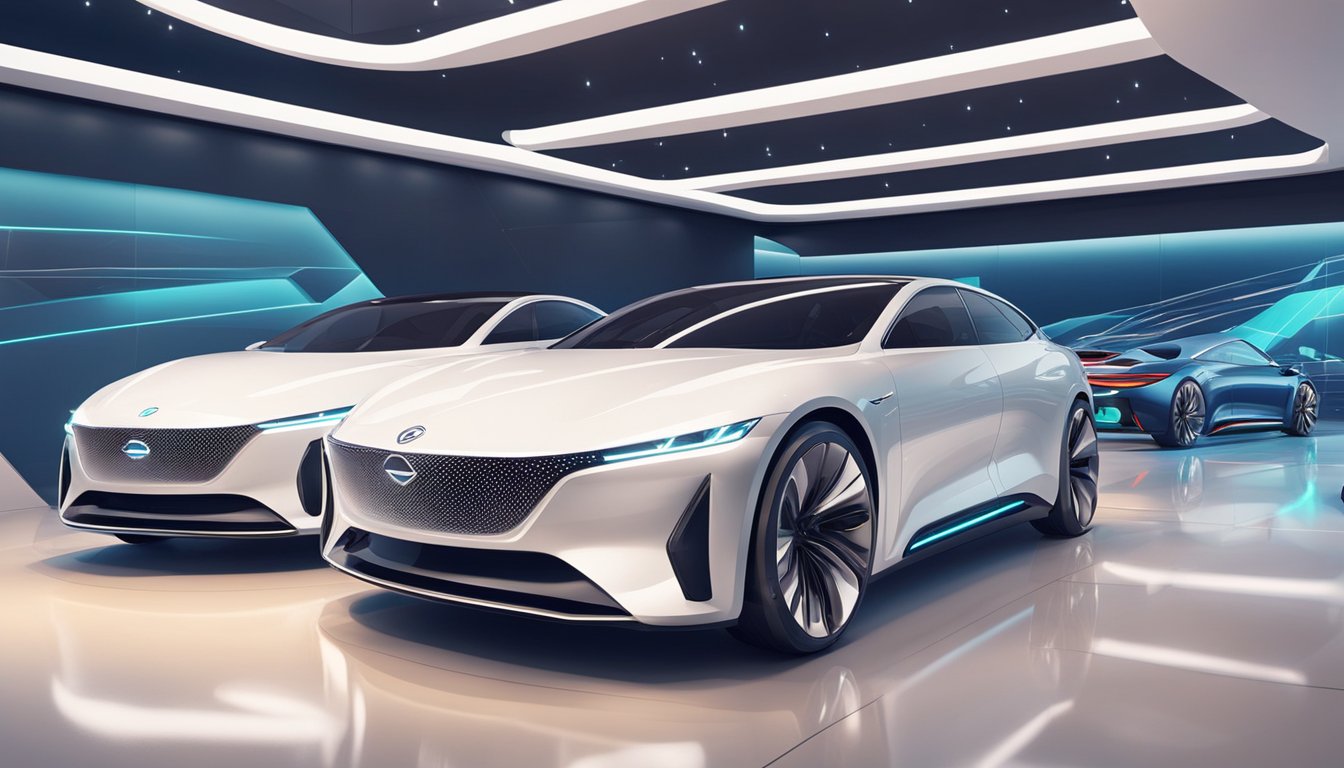
Electrified and Hybrid Models
Car brands have been continuously innovating and improving their vehicles to meet the demand for more environmentally friendly and fuel-efficient cars. Electrified and hybrid models have become increasingly popular in recent years, with many car manufacturers offering a range of options to suit different needs and budgets.
One of the most significant advantages of electrified and hybrid cars is their reduced emissions, making them a more environmentally friendly option. They also offer better fuel economy, which means you can save money on petrol or diesel costs. Furthermore, some models can operate on electric power alone, making them even more cost-effective and eco-friendly.
Car manufacturers have also been improving the design of electrified and hybrid models to make them more appealing to buyers. For instance, some models have been designed to look more futuristic, with sleek lines and aerodynamic shapes. Additionally, some car brands have incorporated advanced technology, such as regenerative braking and intelligent energy management systems, to improve the performance and efficiency of their electrified and hybrid models.
Advancements in Car Safety
Car safety has always been a top priority for car brands, and they have been continuously improving their vehicles to make them safer for drivers and passengers. With advancements in technology, car brands have been able to incorporate more advanced safety features into their vehicles to reduce the risk of accidents and injuries.
One of the most significant advancements in car safety is the development of autonomous driving technology. This technology allows cars to drive themselves, reducing the risk of human error and accidents. Additionally, many car brands have incorporated advanced safety features such as lane departure warning systems, blind spot monitoring, and automatic emergency braking systems to improve driver safety.
Car manufacturers have also been improving the design of their vehicles to make them safer in the event of an accident. For instance, some car brands have incorporated crumple zones into their vehicles to absorb the impact of a collision and reduce the risk of injury to passengers. Additionally, some car brands have developed advanced airbag systems to protect passengers in the event of a crash.
Overall, car brands have been continuously innovating and improving their vehicles to meet the demand for more environmentally friendly and safer cars. With advancements in technology, we can expect to see even more exciting innovations in car design and technology in the future.
Consumer Preferences and Brand Perceptions
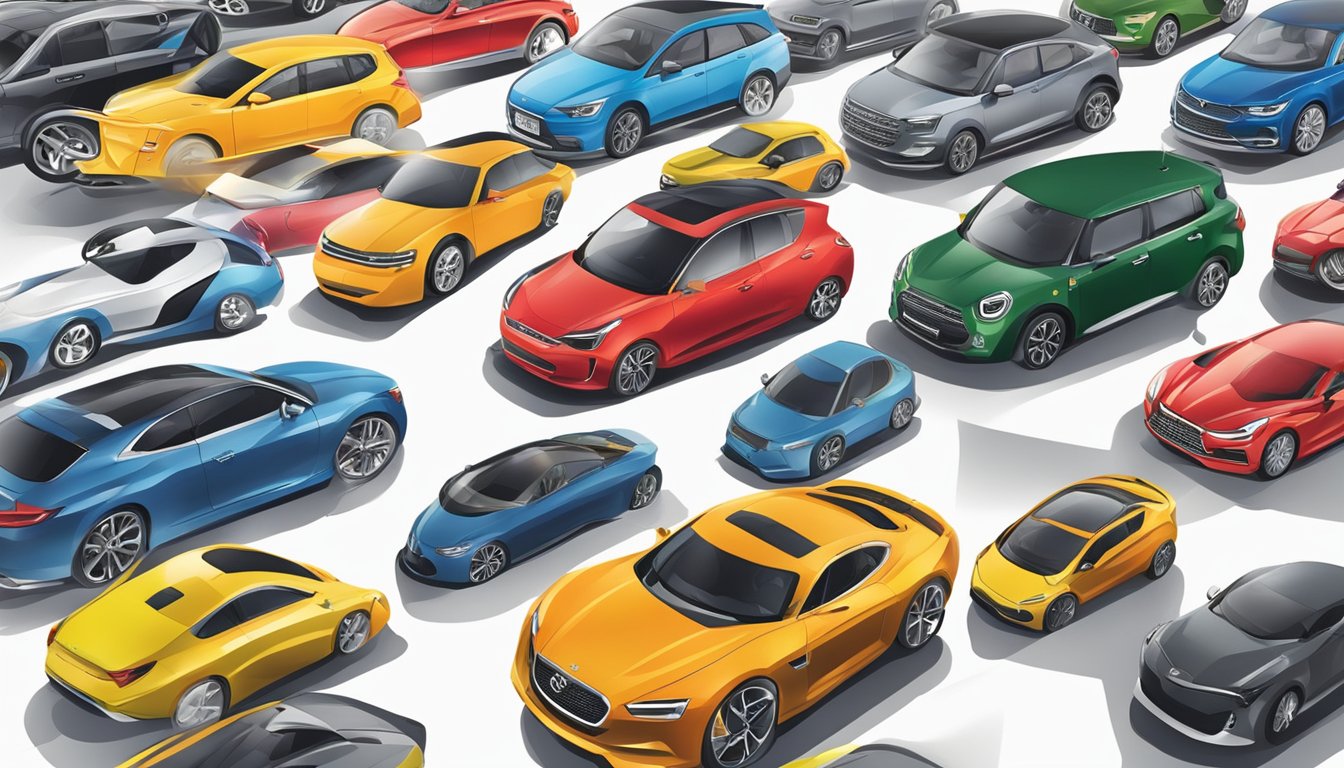
When it comes to buying a car, consumers have a wide range of preferences and perceptions. From luxury to practicality, brand loyalty to consumer trust, there are various factors that influence the decision-making process. Here are some insights into consumer preferences and brand perceptions that can help you make an informed decision.
Luxury Versus Practicality
Luxury car brands such as BMW, Mercedes-Benz, and Audi are often associated with high price tags and superior quality. However, practicality is also a major factor for many consumers, especially those with families. SUVs have been gaining in popularity in recent years due to their spaciousness and versatility. German luxury brands are also known for their reliability, making them a popular choice for those who value quality and durability.
Brand Loyalty and Consumer Trust
Brand loyalty and consumer trust are also important factors in the car-buying process. Many consumers have a strong attachment to a particular brand, whether it’s due to family tradition, personal experience, or reputation. However, trust is also a major concern for consumers, especially when it comes to safety and reliability. According to a recent survey by Consumer Reports, consumers rank safety and quality as the most important factors when choosing a car brand.
When it comes to rankings, there are various lists that rank car brands based on different criteria. For example, the top 10 car brands in the UK according to Auto Express include Porsche, Kia, and Lexus, while the top 10 car brands in the world according to Forbes include Toyota, BMW, and Mercedes-Benz. However, it’s important to keep in mind that rankings are subjective and may not reflect your individual preferences.
Overall, when choosing a car brand, it’s important to consider your own preferences and needs. Whether you value luxury or practicality, brand loyalty or consumer trust, there’s a car brand out there that’s right for you. And with so many options available, it’s never been easier to find the perfect car for your lifestyle and budget.
Car Brand Presence in Singapore
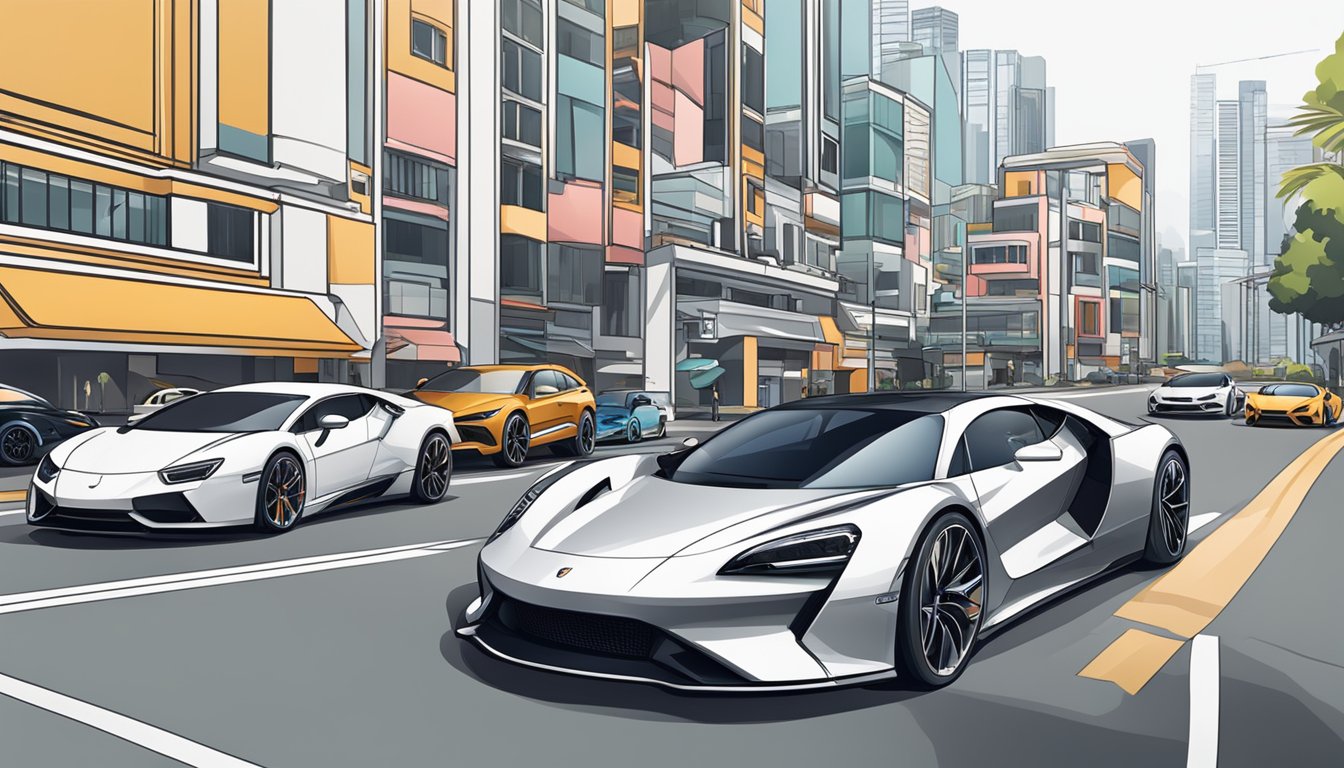
Market Share and Popular Brands
If you’re looking to buy a car in Singapore, you’ll likely be interested in the most popular car brands in the country. According to recent data from the Land Transport Authority, Toyota, Mercedes-Benz, and BMW continue to dominate the new car market, with Toyota leading the pack. Other popular brands include Honda, Nissan, and Audi. Luxury cars and electric vehicles (EVs) are also increasingly popular in Singapore.
However, it’s important to note that the Certificate of Entitlement (COE) system in Singapore heavily impacts the car market. COEs are a quota system that limits the number of cars on the road and are required for car ownership. The COE quota is determined by the government and is adjusted every three months based on demand. The price of COEs can also fluctuate greatly, depending on demand.
Impact of COE on Car Ownership
The COE system has a significant impact on car ownership in Singapore. Due to the limited number of COEs available, the prices can be very high. As a result, many people choose to purchase used cars or opt for car-sharing services instead of owning a car outright.
Additionally, COE prices can vary greatly depending on the type of car and its emissions. For example, cars with lower emissions may have a lower COE price, making them more affordable for buyers. This has led to an increased interest in EVs, as they typically have lower emissions and can be cheaper to own in the long run.
Overall, the car brand presence in Singapore is heavily influenced by the COE system and the demand for luxury cars and EVs. If you’re looking to buy a car in Singapore, it’s important to consider the COE prices and quota, as well as the popularity of different brands in the market. With some research and careful planning, you can find a car that suits your needs and budget in this unique market.
Frequently Asked Questions

What are the most prestigious luxury car manufacturers?
When it comes to luxury car manufacturers, there are a few names that immediately come to mind. Some of the most prestigious luxury car manufacturers include Rolls Royce, Bentley, Aston Martin, and Lamborghini. These brands are known for their top-of-the-line features, high-end materials, and exceptional craftsmanship. Of course, there are many other luxury car manufacturers out there, but these are some of the most well-known.
Can you list the oldest automobile companies still in operation today?
There are several automobile companies that have been around for over a century. Some of the oldest automobile companies that are still in operation today include Mercedes-Benz, Peugeot, Renault, and Ford. These companies have a rich history and have played a significant role in shaping the automotive industry.
Which car maker boasts the emblem with a ‘W’?
The car maker that boasts the emblem with a ‘W’ is Volkswagen. The company was founded in 1937 and has since become one of the largest automobile manufacturers in the world. The ‘W’ stands for “Wagen,” which is German for “car.”
How do various automobile brands rank globally?
The global automobile industry is highly competitive, and there are many different brands vying for the top spot. According to recent rankings, Toyota is currently the largest automobile manufacturer in the world, followed closely by Volkswagen and General Motors. Other top brands include Ford, Nissan, and Honda.
Could you name all the car manufacturers originating from India?
There are several car manufacturers that originate from India. Some of the most well-known brands include Tata Motors, Mahindra & Mahindra, Maruti Suzuki, and Ashok Leyland. These companies have played a significant role in the growth of the Indian automotive industry.
Where can I find a complete A-Z list of car names and their logos?
If you’re looking for a complete A-Z list of car names and their logos, there are several resources available online. One popular website is carlogos.org, which features a comprehensive list of car logos and their respective brands. Another useful resource is car-brand-names.com, which also provides detailed information about each car brand.




